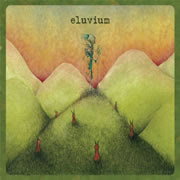
Wighnomy Bros./Robag Wruhme - Remikks Potpurri II (Freude Am Tanzen)
Various - Total 8 (Kompakt)
Bola - S/T (Skam)
D'Arcangelo - Eksel (Rephlex)
Max Rouen - The Magnetic Wave Of Sound (Karaoke Kalk)
Dopplereffekt - Calabi Yau Space (Rephlex)
Philipp Quehenberger - Phantom In Paradise (Mego)
The Tuss - Rushup Edge (Rephlex)
Fovea Hex - Allure (Die Stadt/Janet Records)
A_Dontigny - Geisteswissenschaften (No Type)
jodi cave - absent (term)
Tijuana Mon Amour Broadcasting Inc. - Cold Jubilee (Of The Snowqueen) (Büro)
Track Listing
The Future Sound Of London - Lifeforms (Wighnomy Brothers And Robag Whrumes Simetikon)
Jörg Burger - Polyform 1
Bola - Waknuts
D'Arcangelo - Saturn
Max Rouen - Leon's Genesis
Dopplereffekt - Mirror Symmetry
Philipp Quehenberger - Ozerea 1
Reinhard Voigt - Follow The DJ
The Tuss - Goodbye Rute
Fovea Hex - Neither Speak Nor Remain Silent
A_Dontigny - Begriffsschrift
jodi cave - absent/walking backwards
Tijuana Mon Amour Broadcasting Inc. - Cold Jubilee
Listen to Surgery 45 click here
























